Tourmalet and Aubisque the final hurdles for Thomas at Tour de France – stage 19 preview
A daunting Pyrenean stage – but can it live up to expectations?
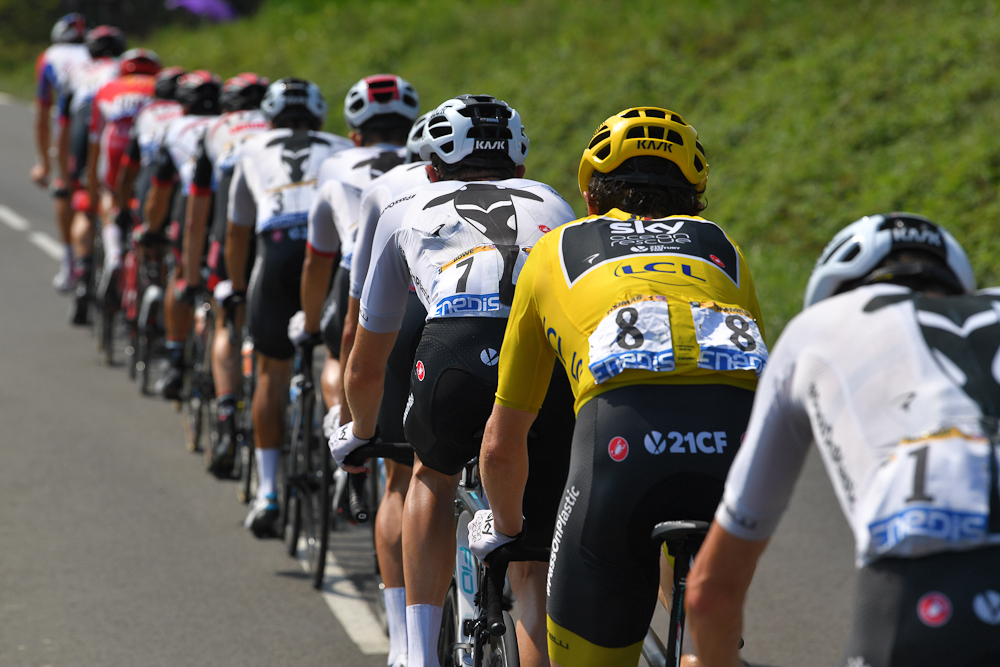
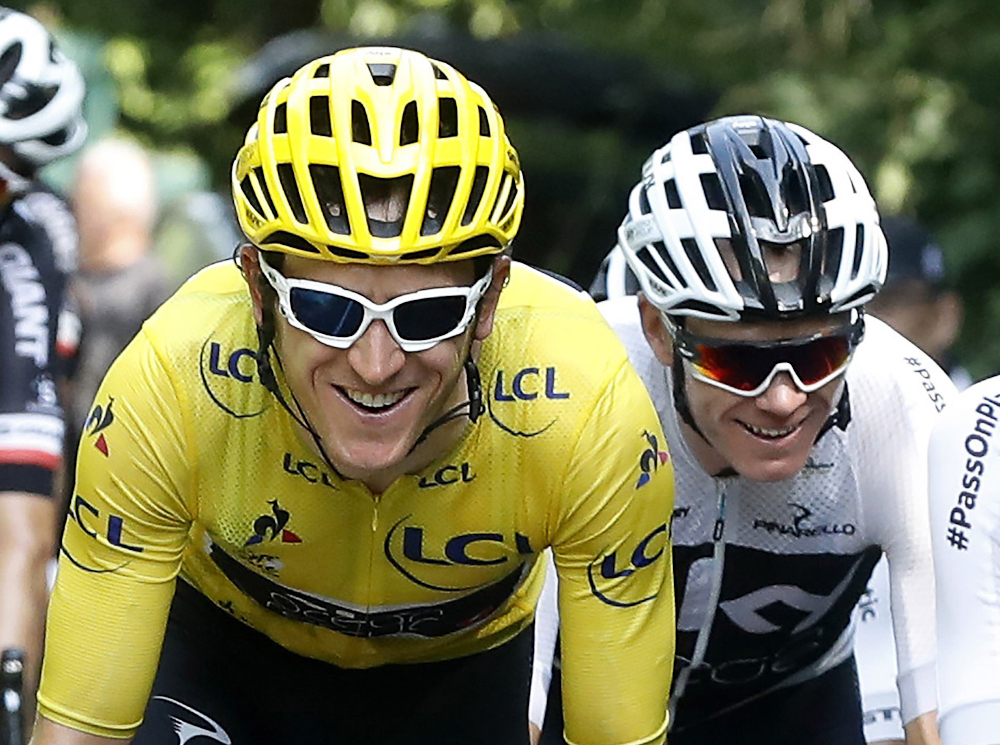
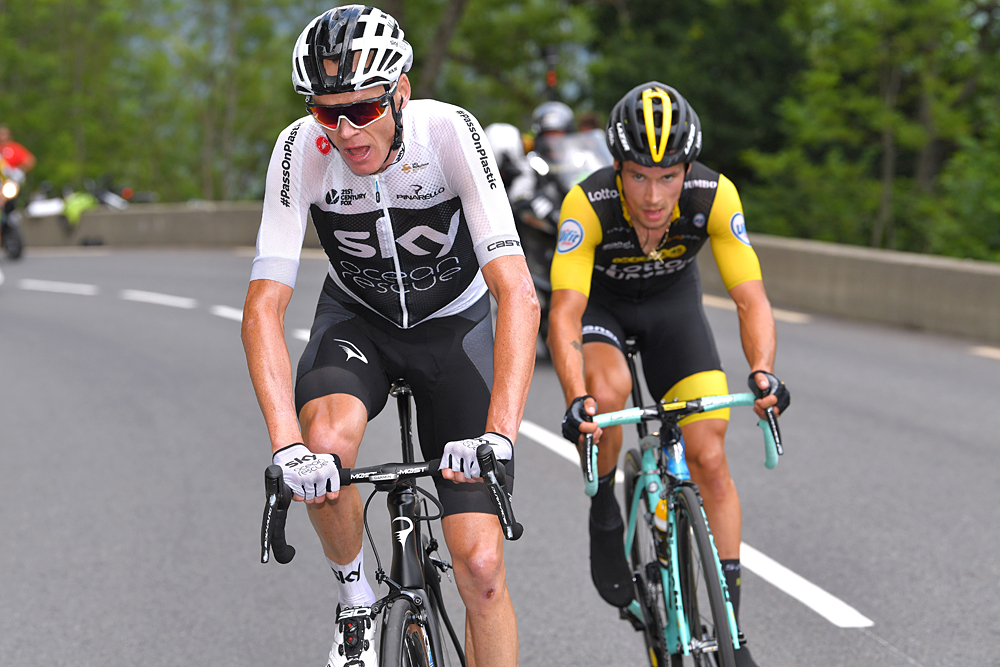
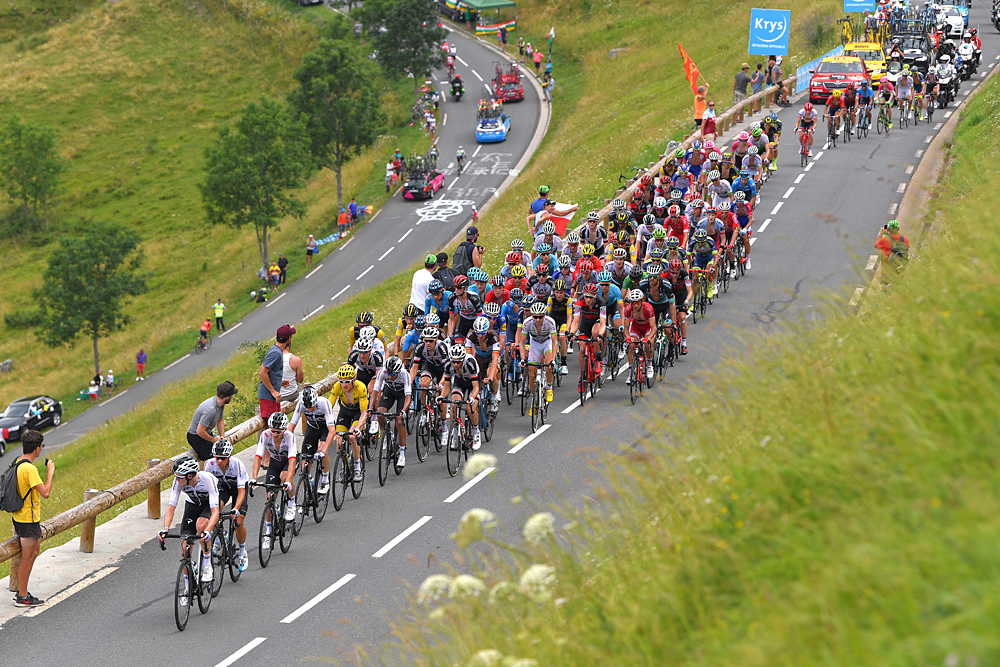
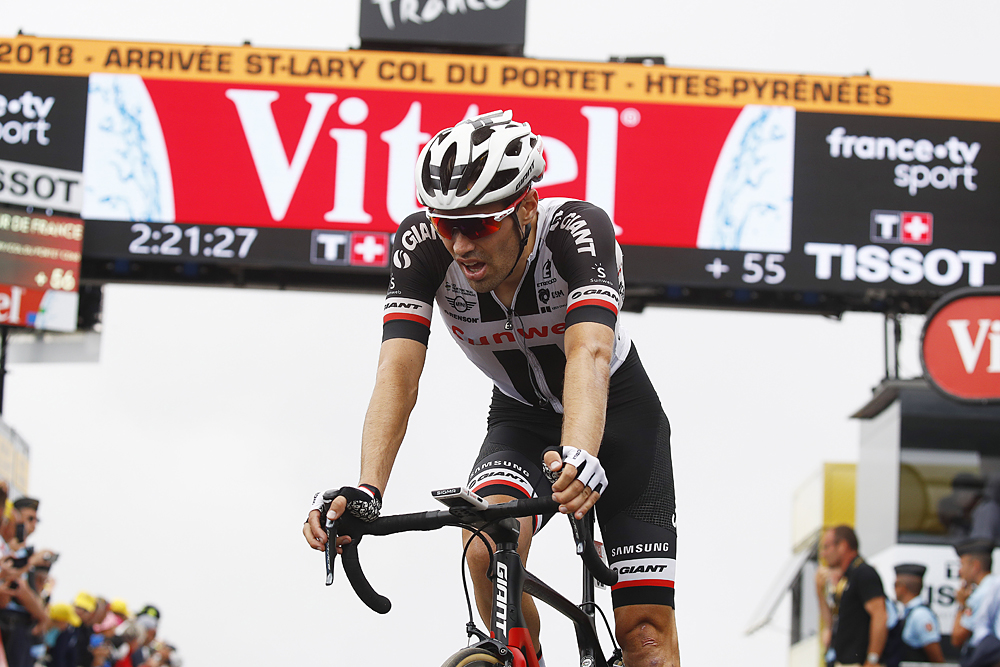
Their names trip off the tongue, and multiple pages of Tour de France history and legend have been written on their slopes, but it is altogether uncertain if the combination of the Col d'Aspin, the Col du Tourmalet and the Col d'Aubisque on stage 19 will suffice to make a material difference to the outcome of this year's edition of the race.
With one mountain stage and one time trial remaining before the processional stage into Paris on Sunday, Team Sky's Geraint Thomas holds a lead of 1:59 over Tom Dumoulin (Sunweb) and 2:31 over his teammate Chris Froome. Already winner of a brace of mountaintop finishes in the Alps, the Welshman secured formal leadership of his Sky team with his performance on the Col du Portet on stage 17 on Wednesday, and his road to final overall victory in Paris now seems a clear one, despite the arduous trek through the Pyrenees to come on Friday.
While the 200km stage offers rather more traditional Tour fare than Wednesday's compact 65km leg to the Col du Portet, the positioning of the day's principal climbs – not to mention the constricting strength in depth of Team Sky – means that stage 19 might not necessarily punch its weight.
When the Tour visited these parts in 2012, Bradley Wiggins' comments summed up the dearth of romance in Sky's particular vision of cycling. Asked if he feared the Tourmalet and its neighbours, Wiggins was unmoved.
"They all go uphill, they're all on tarmac. It doesn't matter what name is on them – you go up them on a bike. It's just a name, really, at the end of the day," he said then. "Ultimately, it's about going out there and averaging 400 watts climb after climb."
For much of the Tour – indeed, for seven of the past eight Tours – Sky have seemed equally unmoved by the most evocative of surroundings and have remorselessly gone about squeezing the life out of mountain stages by setting a brisk tempo on the front of the peloton to discourage attacks.
On Wednesday, for instance, Luke Rowe – a rider for the cobbled Classics – remarkably led the yellow jersey group all the way up the Col de Peyresourde, while Egan Bernal and Wout Poels were held in reserve to police the race on the final ascent. Thomas and Froome will expect similar support on Friday, and the onus will be on their rivals to find a way to isolate them.
Get The Leadout Newsletter
The latest race content, interviews, features, reviews and expert buying guides, direct to your inbox!
After almost three weeks of racing, it's unclear who has the wherewithal to rewrite the script of this Tour. A certain conservatism can set in as Paris draws near, too, with riders looking to hold on to what they have rather than risk losing everything by going on the offensive.
That said, fifth place in the Tour carries (relatively) little cachet for three-time podium finisher Nairo Quintana (Movistar), who showcased his form by winning stage 17 on the Col du Portet. Dan Martin (UAE Team Emirates) and – perhaps – Romain Bardet (AG2R La Mondiale) also seem likely to ride aggressively.
Dumoulin (second overall at 1:59) knows that he cannot hope to make up that deficit solely in Saturday's time trial and will surely look to test Thomas late in the stage. Primoz Roglic (fourth at 2:47) maintains that the podium is the summit of his ambition, but the Slovenian has a useful foil in LottoNL-Jumbo teammate Steven Kruijswijk and has shown few inhibitions to this point. And while Froome (third at 2:31) insists publicly that he is committed to defending Thomas' lead, he will surely be primed for all eventualities.
The terrain
Save for the category 4 Côte de Capvern-les-Bains, the opening 66 kilometres are relatively gentle. The climbing begins in earnest with the category 1 Col d'Aspin, which drags on for 12 kilometres at an average gradient of 6.5%.
Next up comes the 2,115m-high Col du Tourmalet – the second highest point of the 2018 Tour. The hors categorie monster is tackled via La Mongie and climbs for 17.1 kilometres. The gentle opening kilometres mean that the average gradient of 7.3% rather understates its difficulty. For much of the upper portion of the climb, the slopes flit between 9 and 10%.
A climb of this magnitude inevitably carries a weight of natural attrition, but it's unclear if any of the GC contenders are minded to go on the offensive here, given that the summit is some 92 kilometres from the finish, and considering that any attackers will face nigh-on 30 kilometres of valley roads after the descent to Luz-Saint-Sauveur.
The denouement begins with the category 2 Col des Bordères (8.6km at 5.8%), which is followed almost immediately by the two-part pour of the hors categorie Col d'Aubisque (16.6km at 4.9%). The first seven kilometres of the ascent, which bring the race to the Col du Soulor, are a brute, with the gradient oscillating between 8 and 8.5% all the way.
On reaching the Col du Soulour, the route descends briefly before taking in the final ascent towards the Aubisque itself, where the final three kilometres average 7%. The summit of the Aubisque comes 20 kilometres from the finish. The cliché says that the riders will be able to see Paris from the top, but they will have to endure a white-knuckle descent to Laruns first. Any mistakes could be ruinous.
"You never know what can happen – it's cycling," said Astana's Jakob Fuglsang, who sits in 10th place overall. "If you look back to what happened at the Giro [when Froome went on a lone attack for 80 kilometres and took the race lead], then you'll remember that everything can change in a day. We'll see tomorrow. It's definitely a massive stage. Things could change, but how much, that's difficult to say."
Fêtes de Bayonne
When the 2018 Tour de France route was initially planned, the race's precise slot on the calendar had not been fixed, and it was ASO's intention to hold three Pyrenean stages in succession in the third week, followed by a time trial around Pau and a road stage in the Basque Country on the penultimate day.
The decision to shift the start of the 2018 Tour back by a week to avoid a clash with the football World Cup, however, led to a change in the running order, as Le Monde reported on Thursday. A new clash, this time with the Fêtes de Bayonne – the five-day-long Basque festival – meant that the last road stage before Paris had to be changed to a time trial.
When all the route-planning furniture was finally rearranged, the feng shui of the Tour was rather different than initially imagined. The trio of stages in the Pyrenees were broken up by Thursday's flat run from Trie-sur-Baïse to Pau, meaning that the peloton had something of a respite before facing the final mountain stage from Lourdes to Laruns.
The stakes
Ultimately, Saturday's 31km time trial in the Basque Country might very well provoke bigger time gaps than the Tour's final day in the mountains, but Dumoulin knows that he cannot win overall unless he draws significantly closer to Thomas on the road to Laruns.
"Attacking on the Tourmalet with the valley that follows does not make any sense," Dumoulin's Sunweb teammate Laurens ten Dam told De Telegraaf on Thursday. "We have to give it a shot on the Aubisque, and then Tom has to do a good time trial on Saturday. Maybe he can make up for 30 or 40 seconds there."
So far, the surprising Thomas has appeared strikingly at ease in the mountains, winning back-to-back summit finishes in the Alps. The Welshman has never finished higher than 15th in a Grand Tour, however; nor has he ever made it to Paris without enduring a jour sans or a costly crash. He has avoided both to this point, and it seems that only one or the other can deny him now.

Barry Ryan was Head of Features at Cyclingnews. He has covered professional cycling since 2010, reporting from the Tour de France, Giro d’Italia and events from Argentina to Japan. His writing has appeared in The Independent, Procycling and Cycling Plus. He is the author of The Ascent: Sean Kelly, Stephen Roche and the Rise of Irish Cycling’s Golden Generation, published by Gill Books.